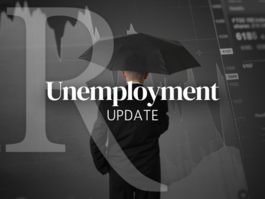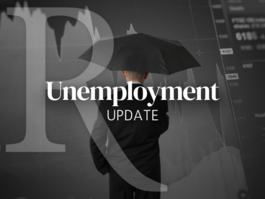Hold the Champagne -- Happy Days Aren't Here Again
A Commentary By Michael Barone
The recession is over, we are told. The Commerce Department announced Thursday that the economy grew in the third quarter of 2009 by 3.5 percent. Great, huh?
Maybe not. About half that growth came from the Cash for Clunkers program, which transferred into the third quarter auto sales that would have occurred later. The expiring tax credit of $8,000 for first-time homebuyers stimulated some house sales. Most of the impact of the $787 billion stimulus package, we are told by the Obama White House, has already been felt.
"There were few signs in the new data," writes The Washington Post's Neil Irwin, "that the private sector will be able to sustain that growth once the government pulls back." Or, as Peggy Noonan writes in The Wall Street Journal, "No one has any faith in these numbers."
And no one has much confidence that unemployment, which hit 9.8 percent in September, will decline significantly any time soon -- or that the policies of the Obama administration and Democratic congressional leaders will stimulate the creation of new jobs.
Higher tax rates on high earners, which will take effect when the Bush tax cuts expire next year, will certainly not create jobs. The taxes and increased federal spending in the Democrats' health care bills won't, either. Nor will the increased cost of energy that would be imposed by the Democrats' cap-and-trade legislation.
As for the stimulus package, blogger Daniel Blatt notes that twice as many Californians filed for unemployment benefits last week than the total number of California jobs that were "created or saved," as estimated by recovery.gov.
So we may be facing an extended period of high unemployment with a liberal government in office. An interesting question for political analysts -- and elected politicians -- is what effect this will have on public opinion.
History gives us some clues. The one similar extended period that comes to mind was the second term of Franklin Roosevelt, when a serious recession hit the economy in 1937 and unemployment continued stubbornly above 10 percent until wartime mobilization began in the 1940s.
Gallup polls tell us that Roosevelt continued to enjoy positive job approval, significantly above Barack Obama's current level of 52 percent. But Roosevelt's policies fared far worse.
Two-thirds of voters wanted him to follow more conservative policies and felt that administration policies were delaying economic recovery. Large majorities opposed increased government spending, even after an FDR fireside chat. By a two-to-one margin, voters thought the economy would do better under Republicans.
Large majorities opposed the sitdown strikes that enabled the United Auto Workers to organize the auto companies, and two-thirds wanted the pro-union Wagner Act revised or repealed -- attitudes echoed in the current opposition to the GM and Chrysler bailouts and to the unions' card check bill to effectively abolish unionization elections by secret ballot.
Americans in the late 1930s seemed to understand that high taxes and government spending programs were producing what Amity Shlaes in "The Forgotten Man" calls a capital strike -- a reluctance by businessmen to invest so long as government and unions threatened to take most of their returns away.
Polls looking ahead to the 1940 election showed Republicans ahead nationally and leading in the large Northern states then critical in deciding presidential elections. Two-thirds of voters opposed a third term for Roosevelt, and in hypothetical match-ups Roosevelt trailed Thomas Dewey, then Manhattan district attorney, and ran only even against Robert Taft, then in his first year in the Senate.
All this is not familiar today because history took a different turn. War broke out in Europe in 1939, and most Americans, anticipating correctly that the United States would be drawn in, ended up preferring the seasoned leader Roosevelt over neophytes like Dewey, Taft or the 1940 Republican nominee Wendell Willkie.
History does not repeat itself exactly, but polling evidence indicates that Americans today, like Americans in the late 1930s, see big government spending programs as an impediment, not an aid, to job creation. They see a future with sluggish economic growth, disincentives to economic and technological innovation (like that tax on medical devices), and continued high unemployment that will hold down wages and incomes.
The Democrats' policies, formulated when the economy was growing and unemployment was low, seem poorly suited economically and thus politically to these parlous times. The recession may be over, but it's not at all clear that happy days are here again.
Michael Barone is a senior political analyst for The Washington Examiner.
COPYRIGHT 2009 THE WASHINGTON EXAMINER
DISTRIBUTED BY CREATORS.COM
See Other Political Commentaries
See Other Commentaries by Michael Barone
Views expressed in this column are those of the author, not those of Rasmussen Reports.
Rasmussen Reports is a media company specializing in the collection, publication and distribution of public opinion information.
We conduct public opinion polls on a variety of topics to inform our audience on events in the news and other topics of interest. To ensure editorial control and independence, we pay for the polls ourselves and generate revenue through the sale of subscriptions, sponsorships, and advertising. Nightly polling on politics, business and lifestyle topics provides the content to update the Rasmussen Reports web site many times each day. If it's in the news, it's in our polls. Additionally, the data drives a daily update newsletter and various media outlets across the country.
Some information, including the Rasmussen Reports daily Presidential Tracking Poll and commentaries are available for free to the general public. Subscriptions are available for $4.95 a month or 34.95 a year that provide subscribers with exclusive access to more than 20 stories per week on upcoming elections, consumer confidence, and issues that affect us all. For those who are really into the numbers, Platinum Members can review demographic crosstabs and a full history of our data.
To learn more about our methodology, click here.



